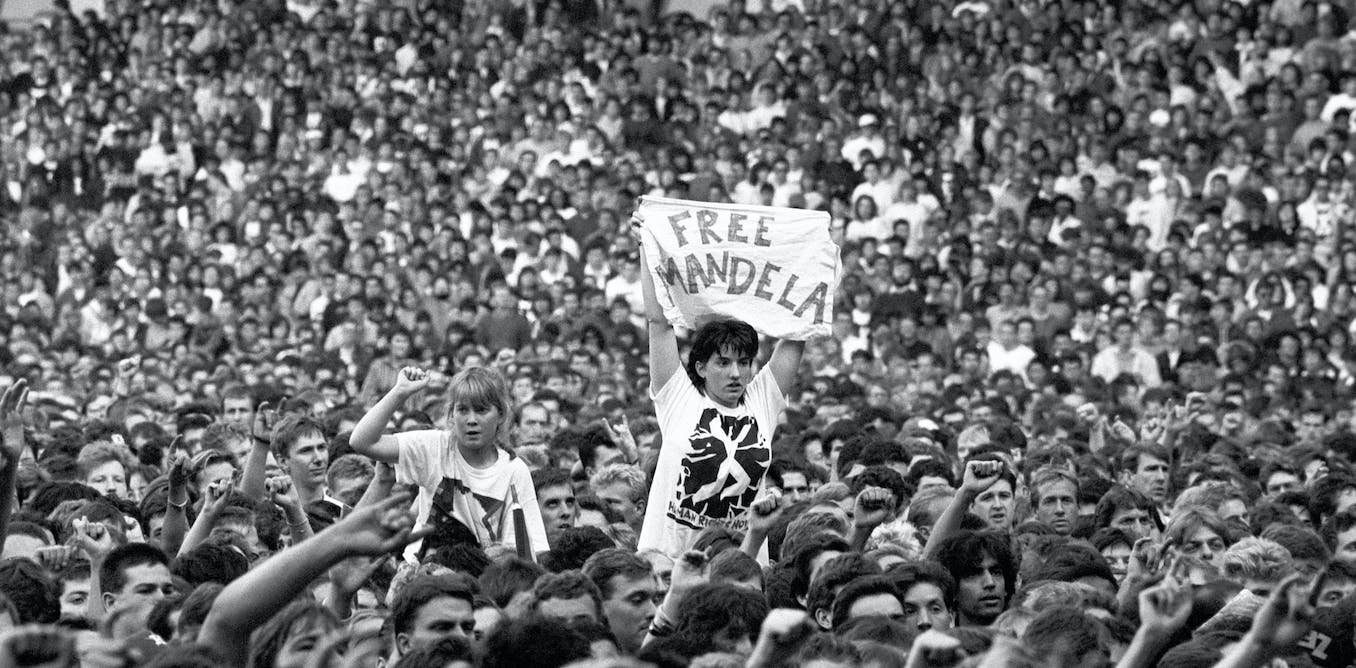
Activism in the 80s
Culture and Activism in the 80s
1979
Conservative Party win with a majority of 43 and Margaret Thatcher becomes the first female British Prime Minister. Among her many controversial reforms was a decision to progressively cut funding for the Arts Council.
1980
Howard Brenton’s The Romans in Britain opens at the National Theatre and was subject to an unsuccessful private gross indecency prosecution by moral campaigner Mary Whitehouse.
1980
Graeae Theatre Company was formed to encourage the active participation of disabled people in the performing arts.
1981
Andrew Llyod Webber’s Cats opens in the West End marking the dominance of musicals throughout the 80s including Starlight Express (1984), The Phantom of the Opera (1986), Les Misérables (1986), Miss Saigon (1989) and Aspects of Love (1989).
1982
Caryl Churchill’s Top Girls opens at the Royal Court Theatre. The play addresses the radically changed political landscape in Thatcher’s first term.
1982
The Falklands War begins between the UK and Argentina led by Prime Minister Margaret Thatcher.
1982-87
Conference of Women Theatre Directors and Administrators
In 1980, a group of women in the theatre industry started meeting to address the gender disparity in top positions. Director Sue Pomeroy conducted initial research, confirming the underrepresentation of women in leadership roles. They then established the Conference of Women Theatre Directors and Administrators, with a fluctuating membership of 40 to 100 over four years.
1983
2nd Conservative victory with majority of 144.
1983
Theatre de Complicite (now known as Complicité) is launched with its unique style of strong design, choreography and physical imagery.
1984
Royal Shakespeare Company (RSC) agree funding partnership with the Guardian Royal Exchange, pioneering the concept of sponsorship with commercial companies.
1985
David Hare’s Pravda opens at the National Theatre satirising the British newspaper industry during the Thatcher era.
1985
Compared with 1971, the number of musicals had increased from 4% from 9%, while new work had decreased from 15% to 11% and the Classics from 18% to 8%.
1986
Talawa was founded by Yvonne Brewster, Carmen Munroe, Mona Hammond OBE and Inigo Espejel, in response to the lack of creative opportunities for Black actors and the marginalisation of Black peoples from cultural processes.
1986
Sink the Belgrano! by Steven Berkoff opens at the Half Moon Theatre. The play centres on Thatcher's role in The Falklands War and her decision to torpedo an Argentinian ship.
1986
Arts Council set up the Theatre Enquiry chaired by Sir Kenneth Cork. By 1996, over 50% of the entire theatre allocation of funding went to the National Theatre and the RSC.
1987
3rd Conservative victory.
1987
Trevor Nunn resigns from the RSC and is replaced by Terry Hands.
1988
Peter Hall resigns from National Theatre and is replaced by Richard Eyre.

